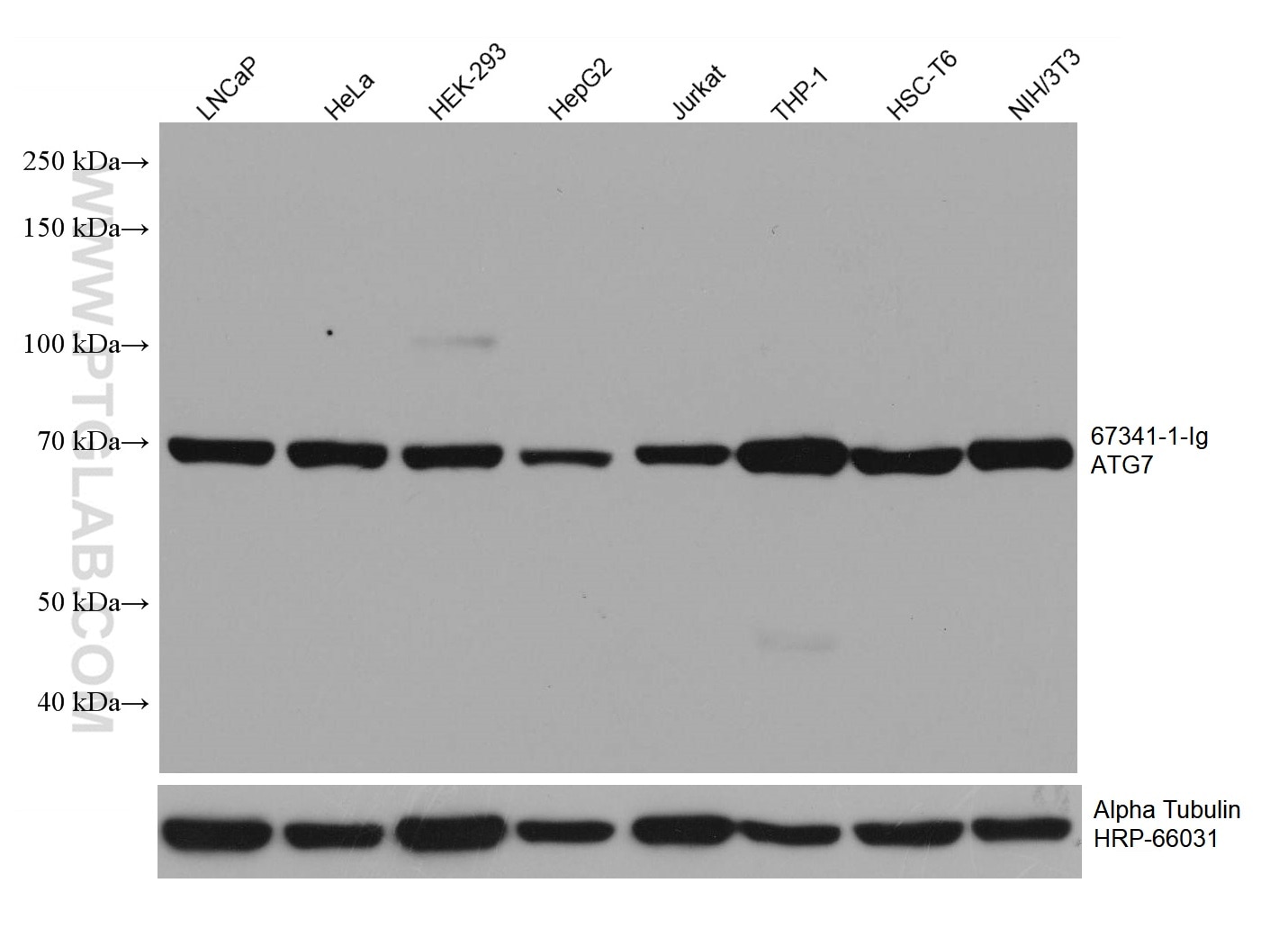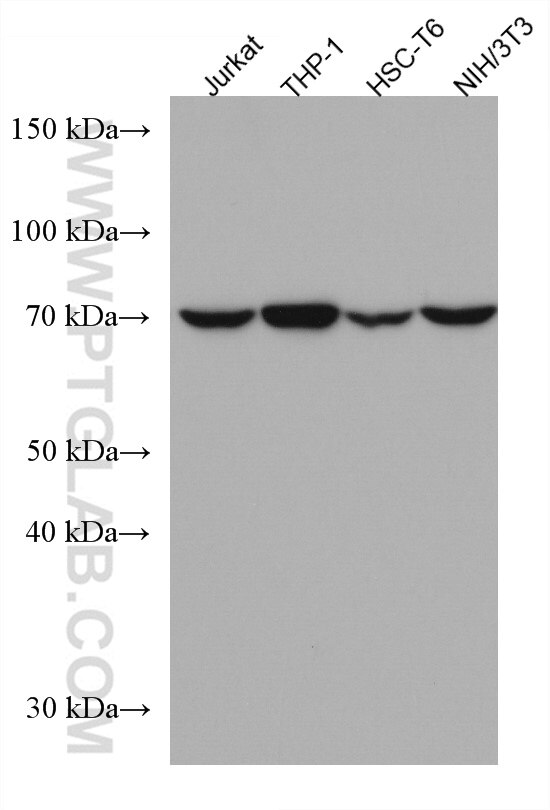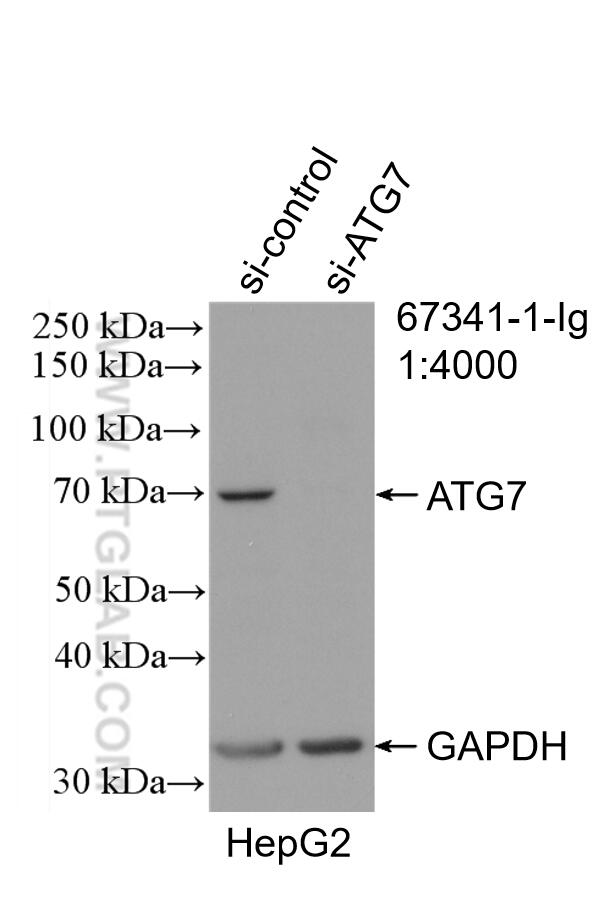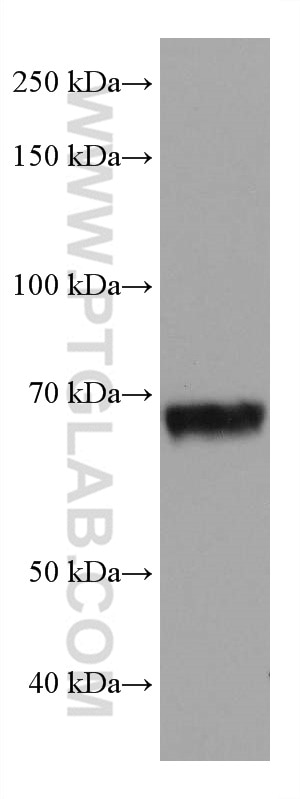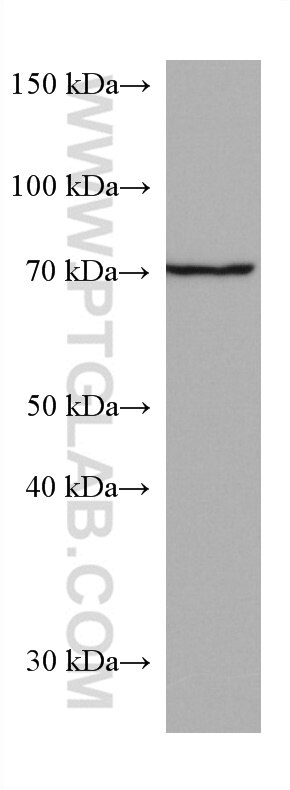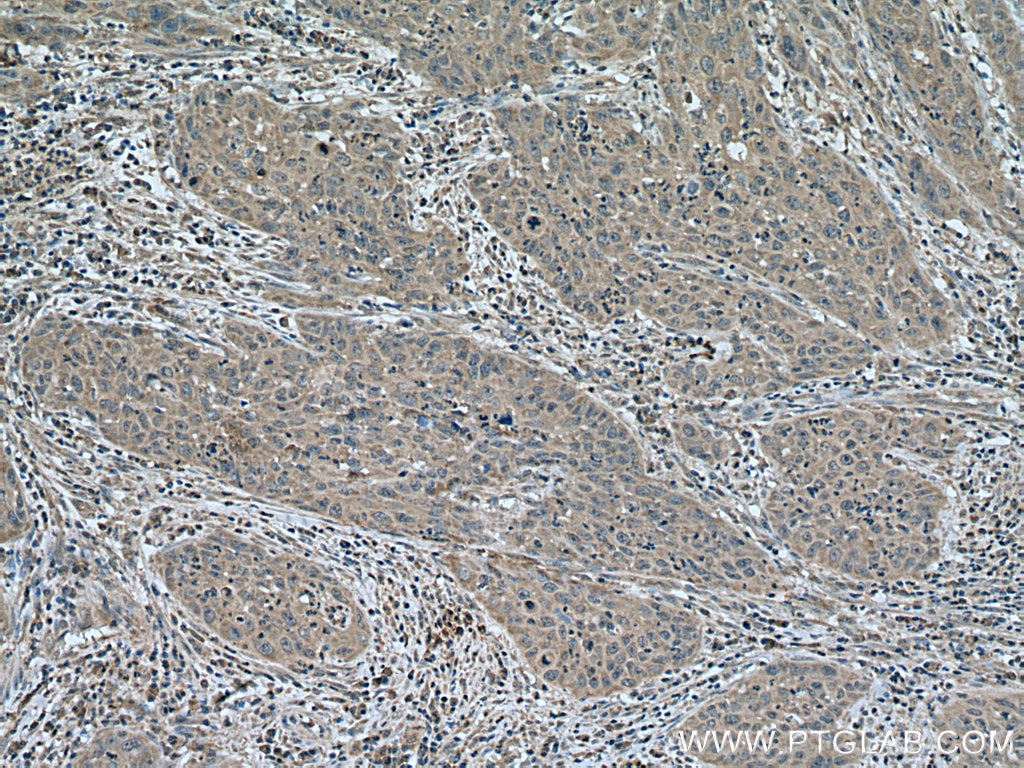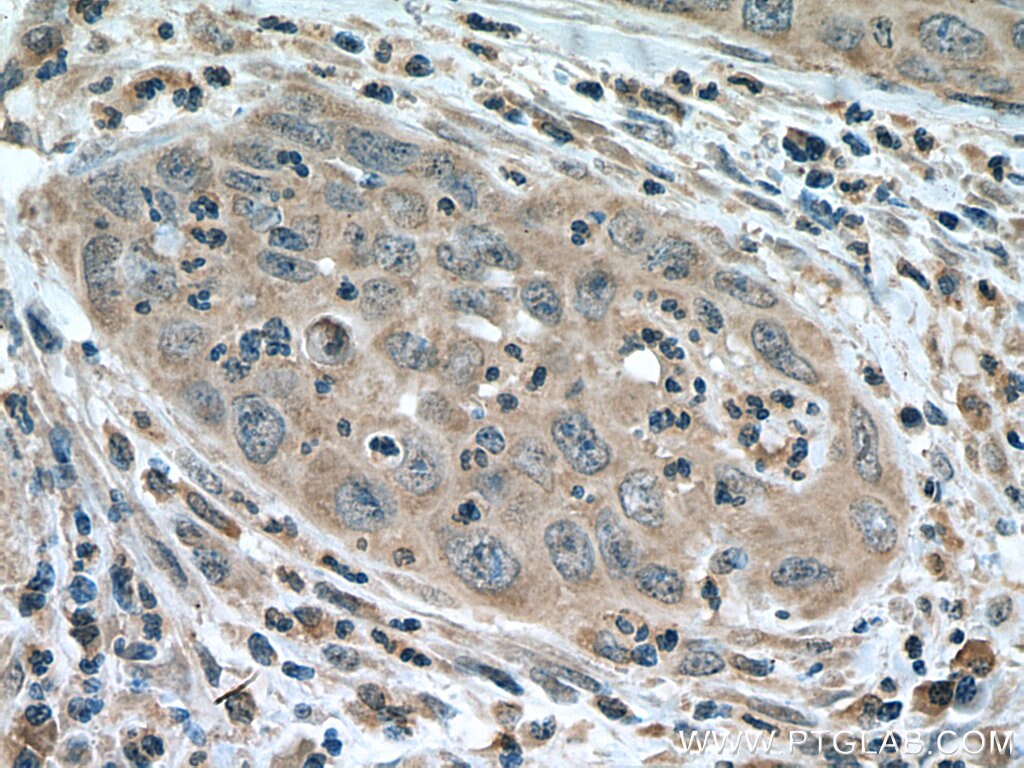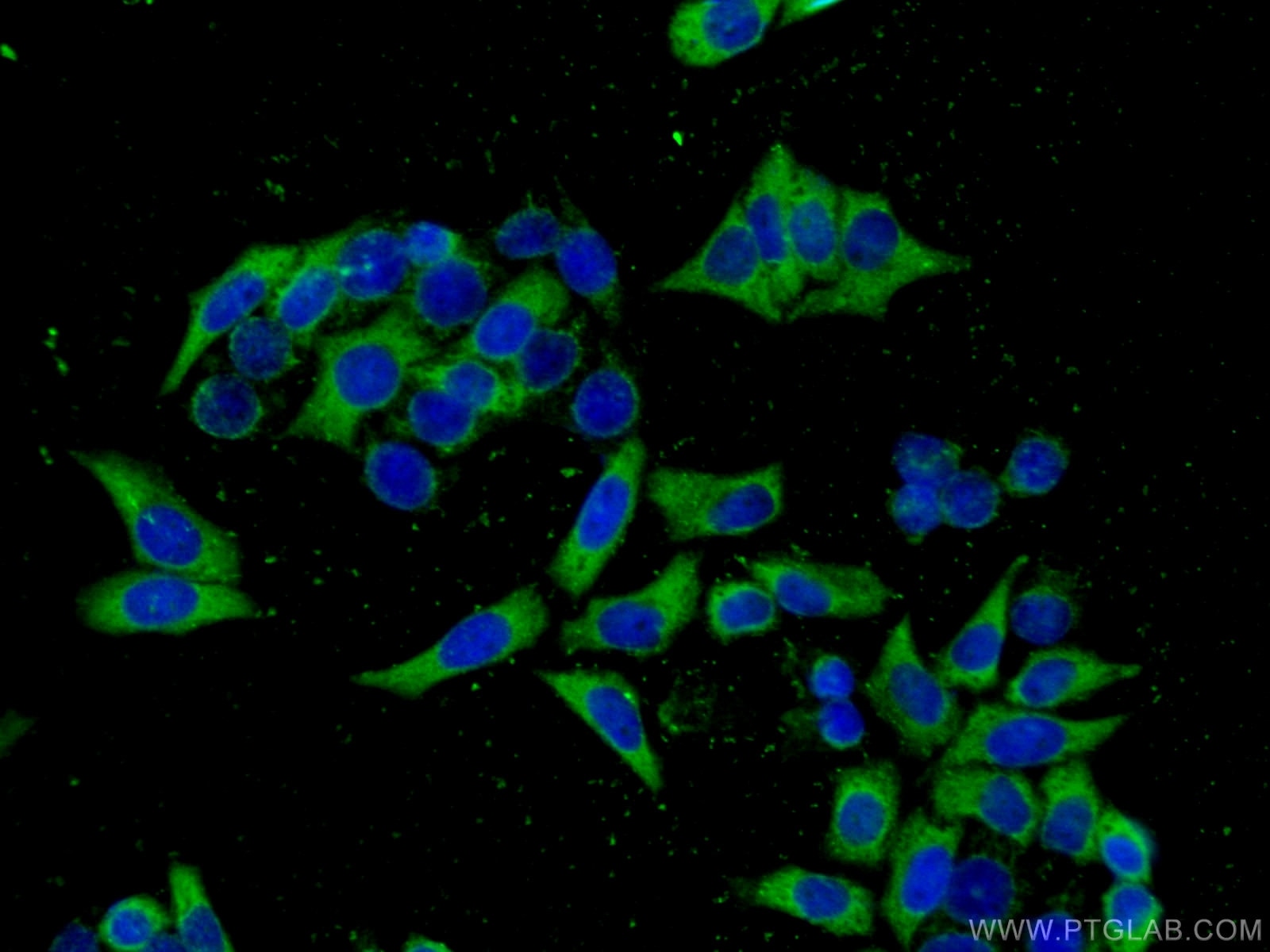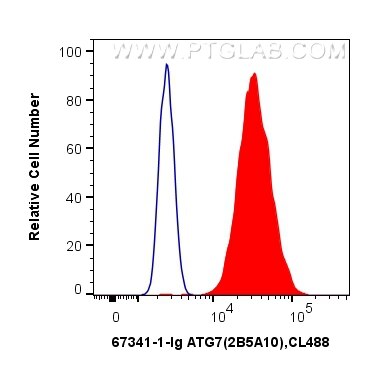Tested Applications
| Positive WB detected in | LNCaP cells, Jurkat cells, pig spleen tissue, HepG2 cells, 4T1 cells, HeLa cells, THP-1 cells, HSC-T6 cells, NIH/3T3 cells, HEK-293 cells |
| Positive IHC detected in | human cervical cancer tissue Note: suggested antigen retrieval with TE buffer pH 9.0; (*) Alternatively, antigen retrieval may be performed with citrate buffer pH 6.0 |
| Positive IF/ICC detected in | HeLa cells |
| Positive FC (Intra) detected in | HeLa cells |
Recommended dilution
| Application | Dilution |
|---|---|
| Western Blot (WB) | WB : 1:5000-1:50000 |
| Immunohistochemistry (IHC) | IHC : 1:500-1:2000 |
| Immunofluorescence (IF)/ICC | IF/ICC : 1:50-1:500 |
| Flow Cytometry (FC) (INTRA) | FC (INTRA) : 0.50 ug per 10^6 cells in a 100 µl suspension |
| It is recommended that this reagent should be titrated in each testing system to obtain optimal results. | |
| Sample-dependent, Check data in validation data gallery. | |
Published Applications
| KD/KO | See 3 publications below |
| WB | See 33 publications below |
| IHC | See 1 publications below |
| IF | See 4 publications below |
| IP | See 1 publications below |
Product Information
67341-1-Ig targets ATG7 in WB, IHC, IF/ICC, FC (Intra), IP, ELISA applications and shows reactivity with human, mouse, rat, pig samples.
| Tested Reactivity | human, mouse, rat, pig |
| Cited Reactivity | human, mouse, rat, canine |
| Host / Isotype | Mouse / IgG2a |
| Class | Monoclonal |
| Type | Antibody |
| Immunogen | ATG7 fusion protein Ag29172 Predict reactive species |
| Full Name | ATG7 autophagy related 7 homolog (S. cerevisiae) |
| Calculated Molecular Weight | 78 kDa |
| Observed Molecular Weight | 68-78 kDa |
| GenBank Accession Number | BC000091 |
| Gene Symbol | ATG7 |
| Gene ID (NCBI) | 10533 |
| RRID | AB_2882599 |
| Conjugate | Unconjugated |
| Form | Liquid |
| Purification Method | Protein A purification |
| UNIPROT ID | O95352 |
| Storage Buffer | PBS with 0.02% sodium azide and 50% glycerol , pH 7.3 |
| Storage Conditions | Store at -20°C. Stable for one year after shipment. Aliquoting is unnecessary for -20oC storage. 20ul sizes contain 0.1% BSA. |
Background Information
Atg7 is an E1-like enzyme that is specifically involved in autophagosome formation and is essential for autophagy. As an autophagic-related protein it is required for linking to Atg12, Atg5 and Atg8, which are essential for Atg conjugation and autophagosome formation. Atg7 has been reported as an important regulator of autophagy with starvation-induced or chemotherapeutic agent treatment. The high expression level of ATG7 is related to the survival of patients with breast cancer. There are several isoforms of ATG7 protein ranged from 68 kDa to 78 kDa.
Protocols
| Product Specific Protocols | |
|---|---|
| WB protocol for ATG7 antibody 67341-1-Ig | Download protocol |
| IHC protocol for ATG7 antibody 67341-1-Ig | Download protocol |
| IF protocol for ATG7 antibody 67341-1-Ig | Download protocol |
| FC protocol for ATG7 antibody 67341-1-Ig | Download protocol |
| Standard Protocols | |
|---|---|
| Click here to view our Standard Protocols |
Publications
| Species | Application | Title |
|---|---|---|
Adv Sci (Weinh) Mitochondrial tRNAGlu 14693A>G Mutation, an "Enhancer" to the Phenotypic Expression of Leber's Hereditary Optic Neuropathy | ||
Cancers (Basel) Nucleolar Stress Functions Upstream to Stimulate Expression of Autophagy Regulators. | ||
J Cell Physiol Cold exposure-induced endoplasmic reticulum stress regulates autophagy through the SIRT2/FoxO1 signaling pathway | ||
Stem Cell Res Ther Oncostatin M receptor regulates osteoblast differentiation via extracellular signal-regulated kinase/autophagy signaling. | ||
Transl Oncol METTL3 methylated KIF15 promotes nasopharyngeal carcinoma progression and radiation resistance by blocking ATG7-mediated autophagy through the activation of STAT3 pathway |
